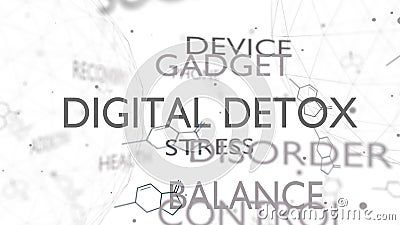
Digital Detox: Balancing Life in the Age of Technology
- 0
In today’s fast-paced world where technology dominates our daily lives, it has become increasingly important to take a step back and evaluate the impact it has on our overall well-being. While technology undoubtedly offers numerous benefits and conveniences, it is equally important to strike a balance and indulge in regular digital detoxes.
Understanding Digital Detox
What exactly is a digital detox? It refers to taking a break from technology, such as smartphones, laptops, tablets, and other digital devices, to create a healthier relationship with technology and promote mental and emotional well-being. It involves setting aside dedicated periods of time to disconnect completely and engage in activities that do not involve screens or constant connectivity.
The Drawbacks of Constant Connectivity
In recent years, the rise of constant connectivity has led to various negative impacts on individuals and society as a whole. Excessive screen time has been linked to a decline in mental health, lack of focus, increased stress levels, sleep disturbances, and decreased productivity. Constant exposure to social media can also create feelings of inadequacy, anxiety, and self-comparison.
Moreover, digital addiction has become a real concern. It is not uncommon to see people glued to their screens, mindlessly scrolling through social media or constantly checking notifications. This overreliance on technology can lead to a detrimental impact on our psychological and social well-being.
The Benefits of Digital Detox
Taking regular breaks from technology can have numerous positive effects on our overall well-being. It allows us to establish a healthier relationship with technology, reclaim our time, and develop better habits. Here are a few benefits of practicing digital detox:
Improved Focus and Productivity
When we detach from digital distractions, it becomes easier to concentrate and be fully present in the task at hand. This enhances our focus, productivity, and allows us to accomplish more in less time.
Mental and Emotional Well-being
Constant connectivity has been shown to contribute to anxiety, stress, and reduced mental well-being. Disconnecting from technology provides a much-needed break, allowing us to relax, recharge, and prioritize our mental and emotional health.
Enhanced Real-Life Connections
By reducing our digital dependency, we can devote more time and attention to cultivating meaningful relationships in real life. Engaging in face-to-face interactions promotes social bonding, empathy, and a deeper sense of connection.
Increased Creativity
Disconnecting from technology gives our minds the space to wander and sparks creativity. Engaging in activities like reading, hobbies, or spending time in nature allows our brains to recharge and generate innovative ideas.
Tips for an Effective Digital Detox
Embarking on a digital detox may seem challenging in today’s hyper-connected world, but it is definitely achievable with some planning and determination. Here are a few tips to get started:
Set clear boundaries: Define specific timeframes or days for your digital detox and communicate them to family and friends.
Create tech-free zones: Designate certain areas in your home or workplace as tech-free zones to minimize temptation.
Engage in offline activities: Rediscover hobbies, read books, go for a walk, practice mindfulness, or pick up a new skill.
Use technology mindfully: When using technology, be intentional and avoid mindless scrolling. Make conscious choices about the content you consume.
Practice self-reflection: Regularly evaluate the impact of technology in your life and identify areas where you can make healthier choices.
Conclusion
In conclusion, striking a balance between our digital lives and the real world is crucial for our mental, emotional, and social well-being. The practice of digital detox allows us to unplug, recharge, and reconnect with ourselves and others. By consciously incorporating regular periods of disconnection, we can regain control over our relationship with technology and create a healthier, more fulfilling lifestyle in the age of technology.

